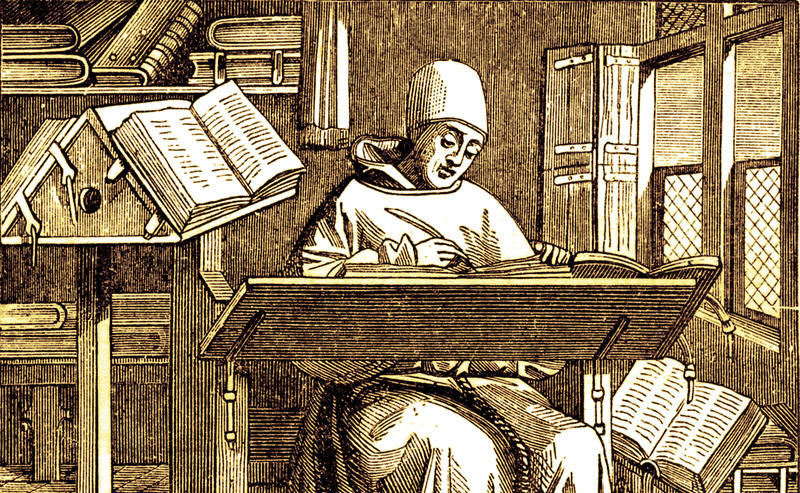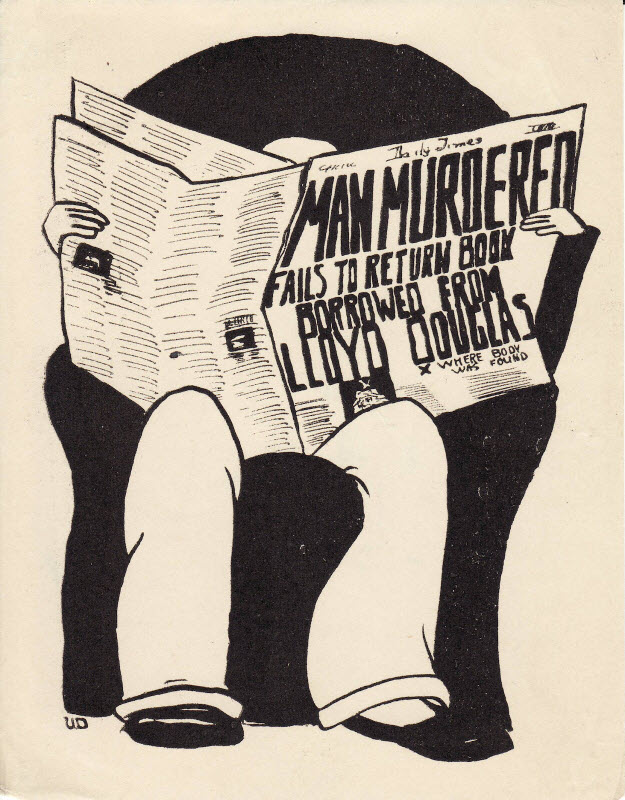In the days before the printing press, book-making was a very laborious process. Each and every book had to made by hand, starting with the preparation of parchment, to the writing, the illumination and finally to the binding. Often a number of scribes, usually monks, worked together in a manuscript carefully forming letters in beautiful calligraphy with ink-tipped feathers, accompanied by rich illustrations. They had to be careful not to make errors, while also making sure that the lines were straight and the letters were of the same size throughout the book. It was a very time-consuming process, which made books very valuable. But this also made books attractive to theft.

In the Middle Ages, libraries often kept books chained to the desk so that patrons cannot take them away. Scribes also used their own weapon against book thieves. At the beginning of the book, and sometimes also at the end, scribes penned dramatic curses threatening thieves with the wrath of God and unbearable pain and sufferings.
“If anyone take away this book, let him die the death; let him be fried in a pan; let the falling sickness and fever size him; let him be broken on the wheel, and hanged. Amen,” read the curse on the Arnstein Bible at the British Library, written in Germany in the 12th century.
In those times, book theft was considered a heinous crime on par with murders and blasphemers. So librarians vowed harsh repercussions on anyone who appropriated the work from its proper owner. The punishments usually included excommunication from the Church or eternal damnation. Others promised agonizing death.
One of the most drastic curse used to protect an entire Spanish library reads as thus:
For him that stealeth, or borroweth and returneth not, this book from its owner, let it change into a serpent in his hand and rend him. Let him be struck with palsy, and all his members blasted. Let him languish in pain crying out for mercy, and let there be no surcease to his agony till he sing in dissolution. Let book- worm gnaw his entail [and] let the flames of Hell consume him forever.
Curses were directed not only towards potential thieves but also towards those who mishandled or disrespected books. There are curses decrying insolent readers who spill drink on the pages of the book or leave stains with their greasy fingers because they were eating or drinking while reading. Ancient librarians also looked down upon those who sneezed on their books, or who fell asleep with their faces in the pages, or who committed any number of other offenses that undermined a book’s physical integrity and durability. One such curse reads:
Who folds a leafe downe
ye divel toaste browne,
Who makes marke or blotte
ye divel roaste hot,
Who stealeth thisse boke
ye divel shall cooke.
Lending books was also discouraged.
He who entrusts [this book] to [others’] hands, may all the gods who are found in Babylon curse him
After the invention of the printing press, book curses devolved from dire warnings to subtle threats, often delivered through clever imagery on the bookplate, like this one:




Comments
Post a Comment